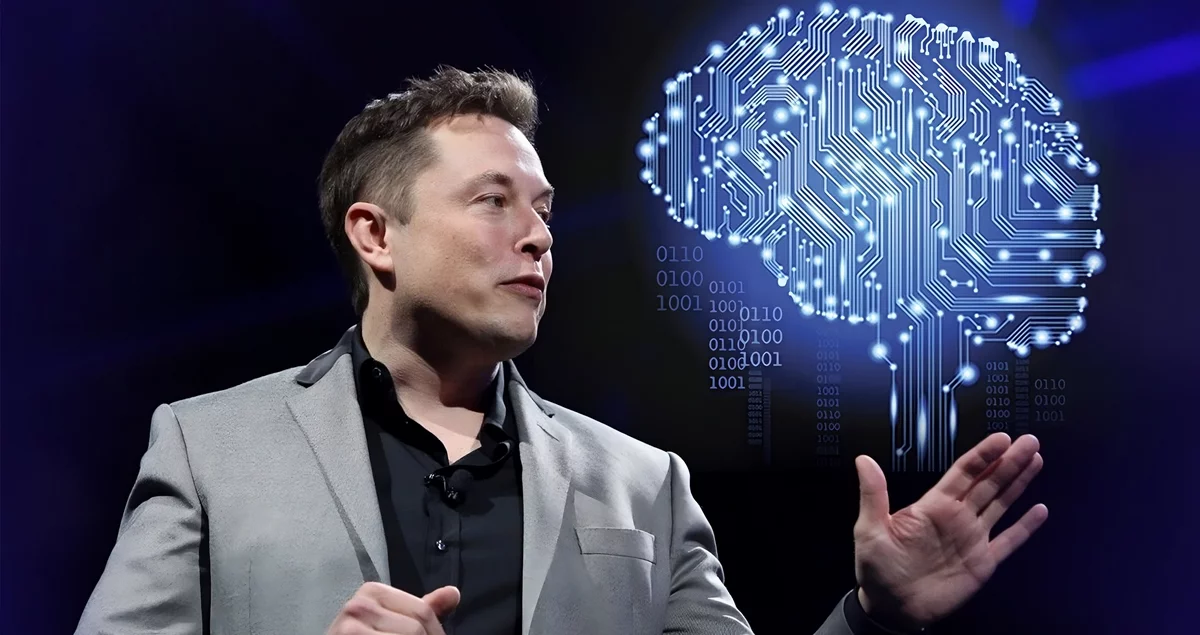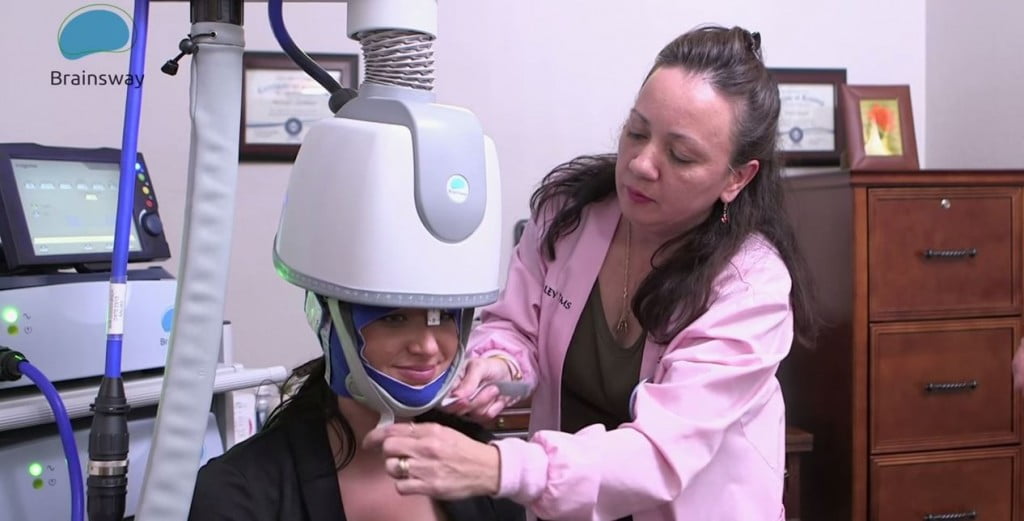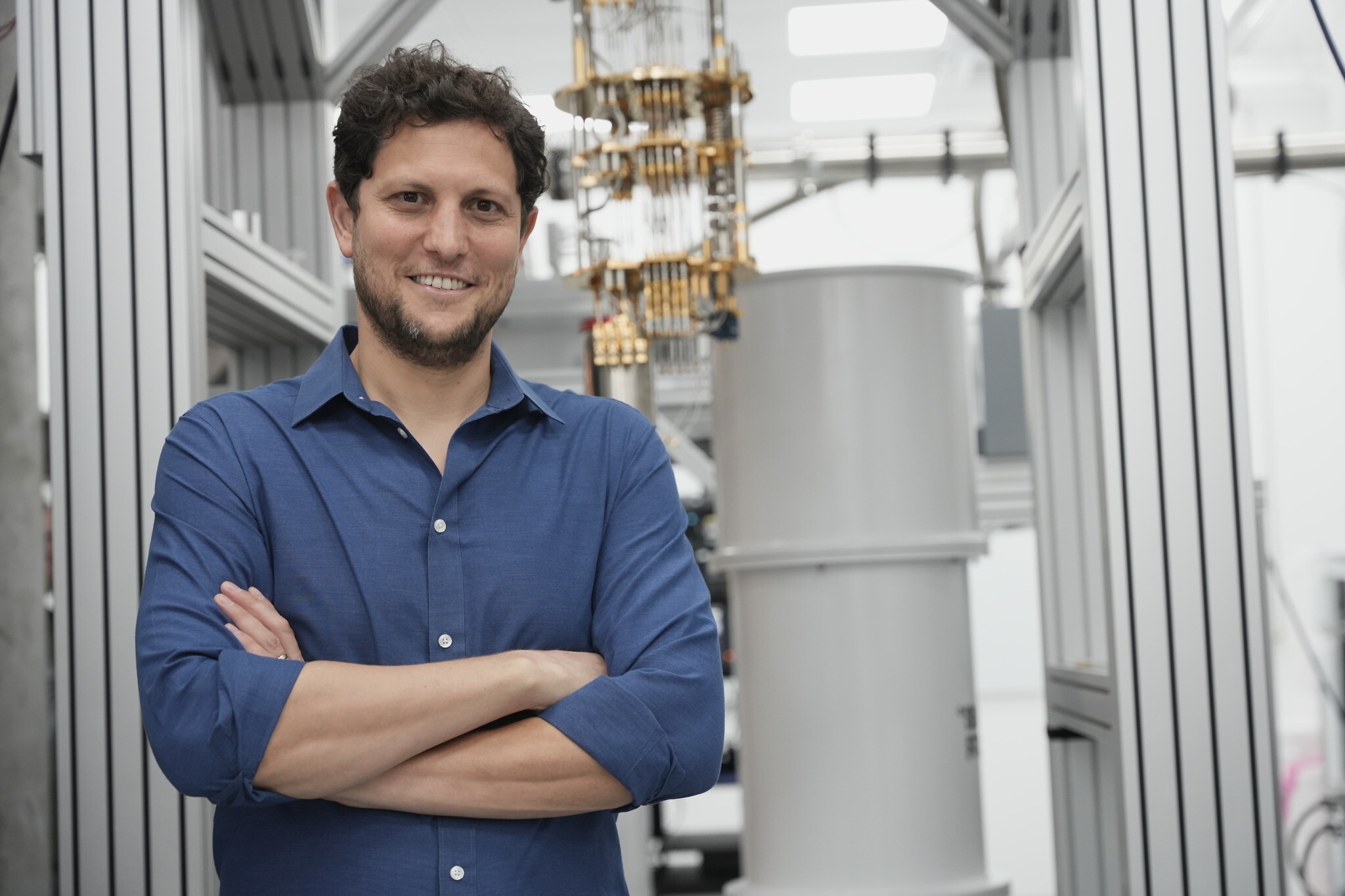RADIO J A 14H45. L’entreprise américaine cofondée par Elon Musk a procédé au premier implant cérébral sur un patient en Californie. En Israël, un interêt majeur sur les innovations liées à Neuralink existe.
Sur Radio J à 14H45 dans l’émission de Steve Nadjar.
Une chronique de Dr Daniel Rouach.
Elon Musk a révélé que la start-up Neuralink, dont il est cofondateur, a posé son tout premier implant cérébral sur un patient. Située à Fremont (Californie), dans la banlieue de San Francisco, Neuralink avait obtenu en mai le feu vert de l’Agence américaine de régulation des médicaments et appareils médicaux, la FDA.
Son implant, de la taille d’une pièce de monnaie, a déjà été placé dans le cerveau d’un macaque, qui a réussi à jouer au jeu vidéo «Pong» sans manette ni clavier. «Les premiers résultats montrent une activité neuronale prometteuse», avait écrit Elon Musk sur Twitter, au sujet de l’implant.
Neuralink n’est pas la première à installer un implant cérébral sur un humain. L’entreprise néerlandaise Onward a annoncé qu’elle testait le couplage d’un implant cérébral à un autre stimulant la moelle épinière, dans le but de permettre à un patient tétraplégique de retrouver de la mobilité.
Des chercheurs de l’institut grenoblois Clinatec ont aussi présenté un implant permettant, une fois posé, à une personne tétraplégique d’animer un exosquelette et de remuer les bras ou de se déplacer.
TECHNOLOGIES CEREBRALES. EN ISRAËL. Plusieurs entreprises israéliennes travaillent sur les technologies cérébrales, dont certaines sont similaires au travail effectué par Neuralink.
L’une de ces sociétés est BrainQ, qui a développé une plateforme permettant d’identifier les dommages causés aux réseaux neuronaux grâce à la simulation motrice.
BrainQ travaille dans le domaine de la neurotechnologie, similaire à Neuralink. Il est important de noter qu’Israël possède un secteur dynamique des technologies du cerveau, avec plus d’une centaine d’entreprises s’occupant de maladies et de traumatismes liés au cerveau.
Ces entreprises sont impliquées dans une gamme d’activités allant du traitement des patients souffrant de lésions neuronales à l’amélioration des tâches quotidiennes.
D’autres sociétés israéliennes travaillent sur des projets similaires à la technologie d’interface cerveau-ordinateur de Neuralink.
CERVEAU-MACHINE. Neuralink, fondée par Elon Musk, vise à développer des interfaces cerveau-machine à haut débit pour connecter les humains et les ordinateurs. L’objectif initial de l’entreprise est d’aider les personnes paralysées à contrôler des appareils numériques, tels qu’un curseur ou un clavier d’ordinateur, en utilisant leurs pensées.
La technologie de Neuralink fonctionne principalement grâce à un implant appelé « Link », un dispositif de la taille d’une pièce de monnaie implanté dans le crâne.
Même si de nombreuses entreprises dans le monde travaillent sur des technologies similaires, y compris en Europe et les États-Unis, les résultats de la recherche ne fournissent pas d’exemples spécifiques d’entreprises israéliennes travaillant exactement sur le même sujet que Neuralink.
RECHERCHE SUR LE CERVEAU. Technologies cérébrales israéliennes (IBT),
Un expert que nous avons interrogé pour IsraelValley : « Nous avons actuellement en Israël plus d’une centaine d’entreprises qui s’occupent du cerveau, nous avons des facultés du cerveau dans chaque université. Ce n’est que le commencement. Nous sommes une « Start-up Nation dans le cerveau ».
Israel Brain Technologies (IBT), qui partageait le rêve de Shimon Peres d’accélérer le développement de traitements innovants grâce à une communauté partagée, et qui a accueilli les conférences biennales BrainTech, accueille également un certain nombre de programmes innovants axés sur la technologie cérébrale, notamment un hub pour les startups, des rencontres.
En Israël on trouve également de nombreux programmes, des réseaux d’investisseurs et de mentors et des bases de données sur les ressources cérébrales.
Israel Brain Technologies (IBT) indique que le nombre d’entreprises de technologie cérébrale en Israël s’occupant de la maladie de Parkinson, de la maladie d’Alzheimer, de la dépression et d’autres maladies et traumatismes liés au cerveau se situe entre 100 et 120.
CONCLUSION. Beaucoup d’entre eux se sont associés à des entreprises d’autres régions du monde, comme aux États-Unis, pour soutenir des startups et des établissements universitaires à la recherche de remèdes contre les maladies neurologiques.
Les technologies cérébrales israéliennes sont diverses. Ils vont du traitement de patients souffrant de lésions neuronales à l’amélioration des tâches quotidiennes en passant par l’assistance aux professionnels de la santé dans la réparation du cerveau. .
LE PLUS. Let’s take a look at eight Israeli companies that behind some of the best innovations in this promising field.
BrainQ
BrainQ has produced a platform that identifies neural network damage through motor simulation sensors. According to Analytics Insight, the technology uses electroencephalography (EEG) data recorded during physical tasks to identify problematic patterns in the nervous system. This data is applied to an algorithm which generates an electromagnetic treatment.
Notably, the platform uses machine learning that adapts to the recovery progress of the patient, creating a personalized treatment plan for each individual.
BrainQ currently works with Google’s AI accelerator, which connects start-ups with Google’s resources to expedite product development.
The company was founded by Dr. Yaron Segal, Yotam Drechsler, and Professor Esther Shohami to find a cure for Segal’s 17-year-old son suffering from a rare brain syndrome. The Jerusalem-based firm raised $5.3 million in May 2018, to cap their total funding to date at $8.8 million. It is also one of the key investments for OurCrowd Qure, Israel’s first exclusive digital health fund, launched in 2016 by the Jerusalem equity crowdfunding platform OurCrowd.
BrainMARC.
BrainMARC is another company that also makes use of EEG sensors. The American-Israeli company was founded by Dr. Goded Shahaf and Dr. Yael Rozen in 2013.
The company’s product uses headsets to generate a Brain Engagement Index, which represents a patient’s level of attention during cognitive exercises. This allows doctors to assess cognitive impairment recovery and intervene during therapy sessions for patients healing from brain injuries such as ADHD and depression. Though still under development, Brainmarc relies on 20 years of research in psychology, signal processing and neuron-networks.
Currently, the technology is being tested in clinical settings in the US, Canada, the European Union, and Israel.
ElMindA.
Electrical and computer engineering Professor Amir Geya of the Ben-Gurion University of the Negev (BGU) founded brain disorder MedTech company ElMindA in 2006 after 30 years of brain-related research.
The company uses a helmet-like device that tracks communication between discrete components of the brain. This has produced neural network maps for over 7000 functions, which assists in developing treatment plans for patients.
The Herzliya-based company has operations in the US and Israel and last reported raising $28 million in a Series C funding round in November 2015. That was also the year the company was recognized by the World Economic Forum as one of the 49 most innovative startups in the world, joining past recipients like Google in 2001 and Twitter in 2010. The annual award is given to companies “poised to have a significant impact on business and society.”
BrainsWay.
BrainsWay uses deep transcranial magnetic technologies to simulate gray matter in the brain’s prefrontal cortex. This non-invasive method engages figure-eight coils to tackle various diseases including obsessive-compulsive disorder (OCD), schizophrenia, bipolar disorder and autism.
The company was established in 2003 by Abraham Zangen, Yiftach Roth, Avner Hagai and David Zacut and has been listed in the Tel Aviv stock exchange since 2007.
In May, it announced it had received 501(k) clearance from the US Food and Drug Administration (FDA) for its new stimulator to be integrated into BrainsWay’s Deep Transcranial Magnetic Stimulation (Deep TMS) System for the treatment of Major Depressive Disorder (MDD).
Aidoc.
Aidoc is an artificial intelligence-powered software that analyzes medical images of organs to identify the presence of diseases. It assists radiologists in expediting problem-spot detection through specific parameters such as neuron-concentration, fluid-flow and bone-density in the brain, spine, abdomen and chest.
The company, founded in 2016 by Guy Reiner, Elad Walach, and Michael Braginsky, has raised $10.5 million to date, closing a Series A funding round for $7 million in April 2017. In December, it announced that it received CE (Conformité Européenne) marking for the world’s first commercial head and neck deep learning medical imaging solution.
Brainvivo.
Brainvivo tackles the limitations of CT scans. Often, medical professionals face difficulties in identifying disease-presence in low-resolution MRI scans. The company solves this issue through tracking water molecule movement in the scans. Already, the software is capable of assessing patients’ neural health through indicators such as the diameter of neural fibers and number of brain cortex layers.
Founded by Assaf Horowitz and Professor Yaniv Assaf, Brainvivo was a finalist at BrainTech 2017’s pitch competition. It was also one of 10 finalists chosen by the Israel Innovation Authority to compete in a startup competition at this year’s Israel’s Mixiii-Biomed, the prestigious three-day life science and biomed conference now in its 17th year, which attracted over 6,000 healthcare professionals, scientists, engineers, and investors from 45 countries.
Intendu.
A more customer-centric solution, Intendu developed a software that places its users in complex real-life simulations to improve patient rehabilitation. It has been applied to individuals suffering from brain dysfunction caused by schizophrenia, depression and Alzheimer’s.
Founded by Dr. Son Reminger and Dr. Barak Blumfeld in 2012, the technology features a console that guides patients through physical exercises targeting eight cognitive skills including response inhibition, divided attention, self-initiation, working memory, cognitive flexibility, planning, sustained attention and persistence.
This product was developed to provide an accessible and affordable form of recovery for patients living in remote locations, Preminger told NoCamels last year.
Cognifit
With just a smartphone, anyone can use Cognifit, an application designed to keep the brain in shape. For 20 minutes three times a week, users are guided through prescribed activities such as mah-jong and Neuron Madness that promote spatial perception, attention, hand-eye coordination and planning skills.
The app also generates a strength and weakness profile, designed to provide customized training for each individual.
Founded in 1999 by psychologist Professor Shlomo Breznitz, the technology also benefits those recovering from stroke, chemotherapy, and multiple sclerosis.







